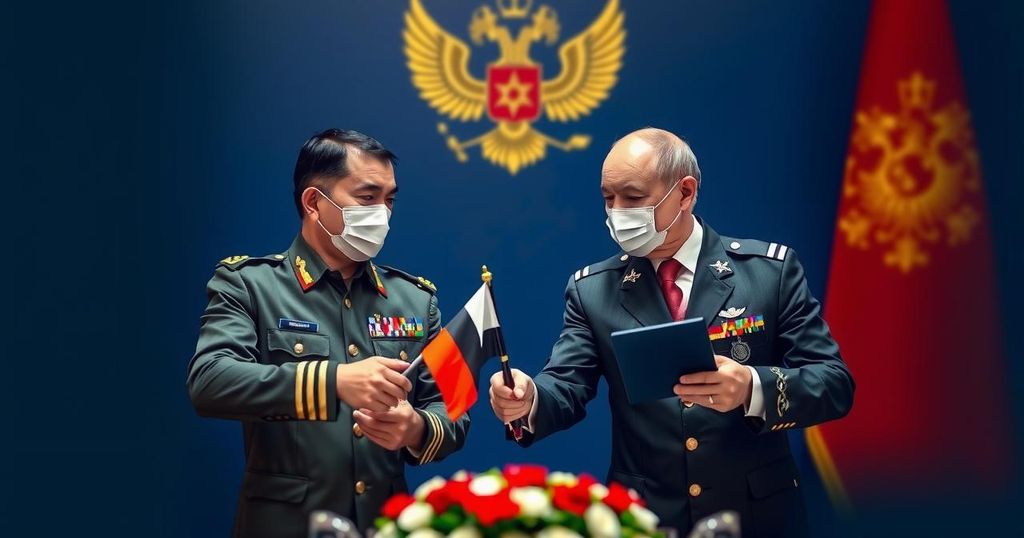Indonesia and Russia signed an extradition treaty aimed at combatting transnational crime, marking Indonesia’s first such agreement with a European nation. The treaty, signed by ministers from both countries in Bali, establishes a legal framework for future cooperation and comes at a time when thousands of Russians have sought refuge in Indonesia following the Ukrainian conflict. This move emphasizes Russia’s strategy to strengthen ties with Asian nations amid increasing Western sanctions.
On Friday, Indonesia and Russia formalized their commitment to combat transnational crime by signing an extradition treaty, marking Indonesia’s inaugural extradition agreement with a European nation. The treaty was executed by Yasonna Laoly, the Indonesian Minister of Law and Human Rights, and Konstantin Chuychenko, the Russian Minister of Justice, during a ceremony held in Bali. Minister Chuychenko emphasized the significance of this agreement, stating that it establishes a legal framework for future cooperation in addressing crime. He remarked, “With this treaty signed, we now have a legal basis for our cooperation in the sphere of combating crimes and this is going to be systematical and productive in the future.” The extradition treaty emerges against the backdrop of increased migration, particularly to Bali, by thousands of Russians and Ukrainians following the initiation of military actions in Ukraine by President Vladimir Putin in February 2022. In the previous year, Russians constituted the second-largest group of visitors to Bali, just after Australians, with projections indicating a continued rise in their numbers. In response to escalating sanctions imposed on Russia by Western nations due to the war in Ukraine, Russia has been actively seeking to strengthen its relationships with nations in Asia and Africa, which are perceived as more favorable. The Russian embassy in Jakarta has indicated President Putin’s intentions to foster investment by Russian Railways in Indonesia’s upcoming capital on the island of Borneo, along with potential Russian involvement in the construction of a $22 billion refinery in East Java, among other initiatives.
The extradition treaty signed between Indonesia and Russia signifies a strategic move to enhance bilateral relations and address transnational crime collaboratively. This agreement is particularly notable as it is Indonesia’s first extradition accord with any European country, highlighting a shift in diplomatic relations amid changing global dynamics. The increase in Russian nationals seeking refuge in Bali, following geopolitical unrest due to the ongoing conflict in Ukraine, adds a layer of urgency to this agreement. As both nations navigate the complexities of their respective international standings, this treaty may serve as a foundation for further cooperation in various sectors, including economic initiatives aimed at mutual benefit.
The signing of the extradition treaty between Indonesia and Russia illustrates a significant development in their bilateral relations and a proactive approach to combatting transnational crime. This agreement not only establishes a legal framework for future cooperation but also reflects the shifting dynamics of international relations, particularly in light of Russia’s need to forge stronger ties with Asia amidst overwhelming Western sanctions. Furthermore, as the influx of Russian migrants continues, this treaty may serve as a pivotal point for addressing legal and criminal issues that arise within the context of this migration trend.
Original Source: www.scmp.com






